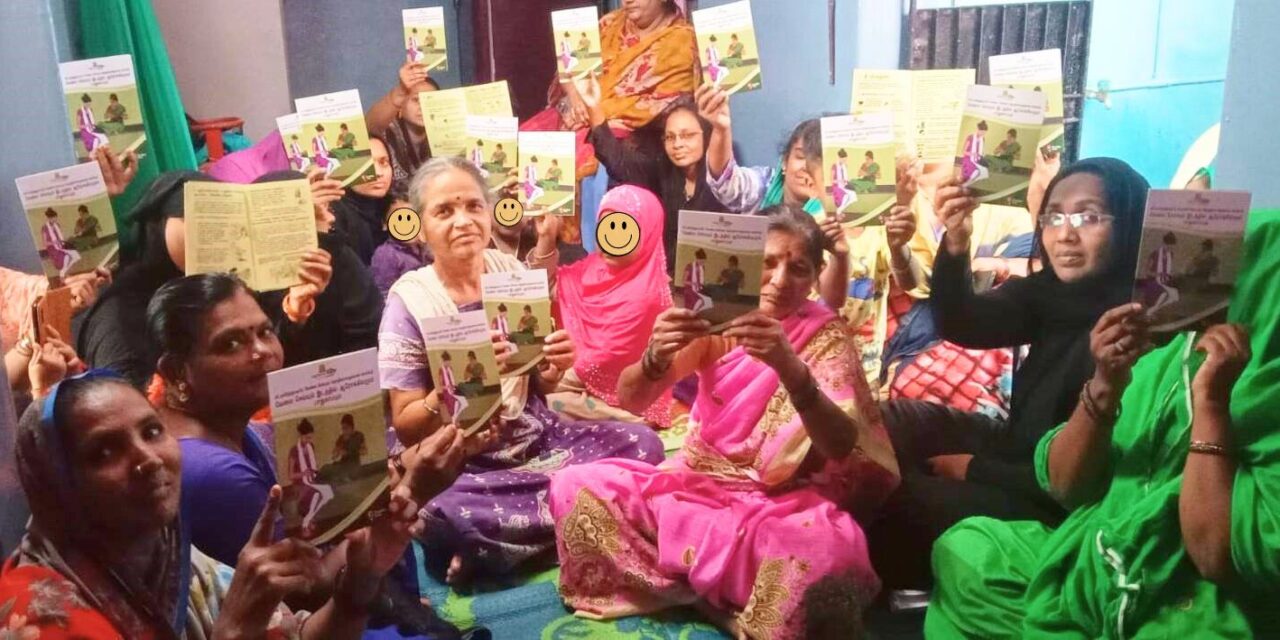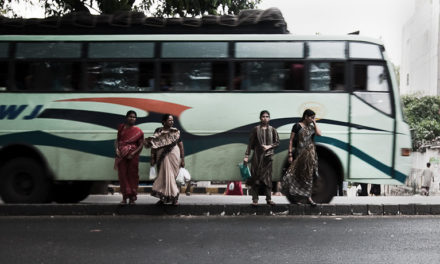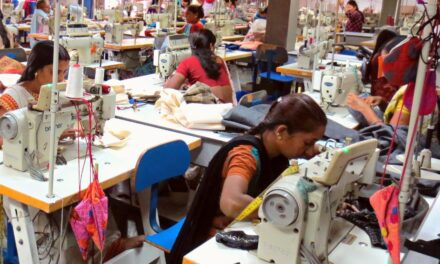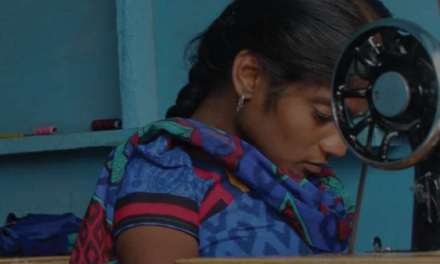A Glance Into The Lives Of Workers With Bite-Sized Stories From Factories, Homes & Communities
Work-from-Home, Safely: When home becomes your workplace, there could be unexpected health complications, especially for those in the manufacturing sector. Workers develop several health issues due to lack of adequate lighting, ventilation, and storage facilities that are typically available in factories. It also impacts the well-being of family members, especially children. Cividep, as part of its worker education initiative, has been raising awareness about occupational health risks faced by home-based leather workers. As part of this initiative, Cividep developed a guidebook in Tamil on occupational health and safety for the homeworkers. More than 400 copies have been distributed among leather workers, who are clustered in and around Ambur in Tamil Nadu. (In pic: A group of leather workers with the guidebook on OSH).
Half-hearted Measures: A Sriperumbudur-based electronics factory decided to mend its ways close on the heels of adverse publicity over poor living conditions at its women workers’ hostel in 2021. However, reform measures come with caveats. Take for instance, the new House Rent Allowance (HRA) for workers, now that the stringent mandatory hostel policy has been relaxed. Workers who take three consecutive days of leave a month will lose their entire HRA of Rs. 5,000. Additionally, if workers take leave on either Monday or Saturday (thus extending their weekly Sunday off), they will lose Rs. 1,500 from their HRA. The worst is reserved for contract workers who take three consecutive days of leave. They get terminated by contract agencies at the behest of the company.
An Unequal Bonus: A smartphone manufacturer with a history of not paying workers their bonuses, finally decided to pay up recently. But bonuses were restricted to its engineers and technicians, who constitute a small fraction of the workforce. Conversations with workers revealed mixed sentiments, with some expressing satisfaction at receiving a bonus equivalent to one or even two months’ salary. However, the majority, including machine operators and shop floor workers, expressed disappointment as they were left out while their engineering counterparts were rewarded. The selective payment by the company seems to be illegal as all its workers are covered under the Payment of Bonus Act, 1965, and are eligible for a minimum bonus of 8.33% of their annual wages.
Evasion through coercion: Workers on the brink of completing five years of service complain about facing targeted mistreatment at a garment factory in Bengaluru. This is a ploy by the employer to evade gratuity payouts and the pattern is the same. These workers are called in frequently by the supervisor on some pretext or the other. Their work is constantly scrutinised for faults. In case of quality issues, the workers are verbally abused. To exacerbate matters, their products are returned with alleged mistakes in stitching. The distress caused by this relentless pressure has led some workers to resign from their jobs.
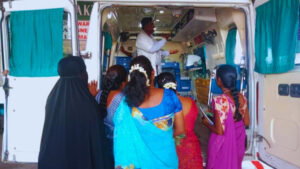 Know About Affordable Health: Home-based leather workers were recently informed about special government health schemes designed for low-income households, at an awareness meeting organised by Cividep. The facilitators included the Tirupattur District Project Manager for the Chief Minister’s Comprehensive Health Insurance Scheme, an initiative of the Tamil Nadu government. Workers were informed about other government schemes such as the Makkalai Thedi Maruthuvam (a flagship programme that provides health care at doorsteps), and Innuyir Kaapoom-Nammai Kaakkum 48 (free treatment for road accident victims within 48 hours). A four-member team from the 108 Ambulance, the free national emergency ambulance service (seen in the pic), demonstrated various first-aid procedures. The event concluded with Mr. Marimuthu, Joint Director, Health Department, Tirupattur, informing the participants about how the health of a district is assessed, and his plans for achieving zero maternal mortality rate in the district.
Know About Affordable Health: Home-based leather workers were recently informed about special government health schemes designed for low-income households, at an awareness meeting organised by Cividep. The facilitators included the Tirupattur District Project Manager for the Chief Minister’s Comprehensive Health Insurance Scheme, an initiative of the Tamil Nadu government. Workers were informed about other government schemes such as the Makkalai Thedi Maruthuvam (a flagship programme that provides health care at doorsteps), and Innuyir Kaapoom-Nammai Kaakkum 48 (free treatment for road accident victims within 48 hours). A four-member team from the 108 Ambulance, the free national emergency ambulance service (seen in the pic), demonstrated various first-aid procedures. The event concluded with Mr. Marimuthu, Joint Director, Health Department, Tirupattur, informing the participants about how the health of a district is assessed, and his plans for achieving zero maternal mortality rate in the district.
Together Against Patriarchy:A half-day interactive session on violence against women was organised for garment workers at the Worker Resource Center (WRC) of partner organization Samriddi, in Kanakapura. High Court advocate Ms. Nirmala facilitated the session, which also promoted worker solidarity. Workers reflected on the roots of violence in a patriarchal culture and how it extends from home to the workplace. They also realised the need to identify instances of violence that often go unnoticed. The session concluded with workers acknowledging the importance of spaces like WRCs that provide opportunities for women workers to come together.
Images: Kohila Senbagam
Text: Gokhularaj R, Pramod Kumar, Kohila Senbagam

